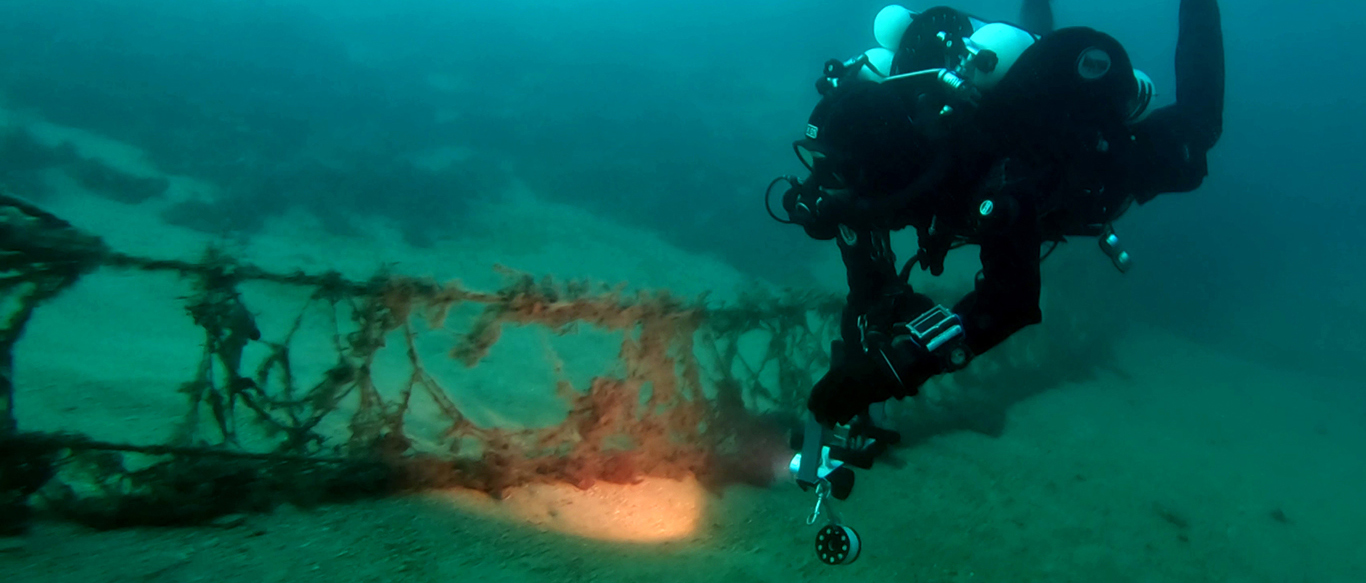Scientific project about ghost nets kicks off in the Adriatic Sea
Ghost Diving and Healthy Seas, in collaboration with Wageningen University & Research, embarked on a pilot initiative to determine the ecological impact and sources of ghost nets recovered by volunteer divers in the North and the Adriatic Seas. A better understanding of these issues will ultimately lead to more effective cleanup strategies and in preventing fishing nets from becoming ghost nets in the future.
The project kicked off on January 15th, 2022 during their first sea cleanup of the year. A team of Ghost Divers from the Netherlands, Croatia and Italy, collected samples and recorded underwater footage which researchers from Wageningen University & Research will analyse from a material and environmental perspective.
Globally, it is estimated that 640,000 tons of abandoned, lost and discarded fishing gear end up in the seas and oceans each year, a substantial share of which is fishing nets. In most cases such nets are made of plastic and take hundreds of years to decompose, thus accumulating in the marine environment. Some of these may continue to catch and kill marine life without human involvement, while others may also act as an important habitat for marine life. Volunteers of the Ghost Diving Foundation have been involved in the retrieval of lost fishing gear in the North and Adriatic Seas for many years. In these heavily fished waters, divers encounter lost or discarded fishing gear on almost every object they dive (wrecks, lost cargo, or reefs).
Wouter Jan Strietman, researcher at Wageningen University & Research: “Up to now, the ecological impact and sources of nets retrieved from wrecks have received relatively little research attention. We are happy to support Ghost Diving and Healthy Seas by contributing our expertise to provide a deeper understanding of the issue.”
Pascal van Erp, Ghost Diving Founder: “With the results coming out of this project we are aiming at improving our cleanup protocol and to further contributing to the dialogue with the fisheries sector around solutions tackling the ghost fishing phenomenon.”
The results of the pilot phase of the scientific project will be published late 2022. It is carried out with the support of DWS.

